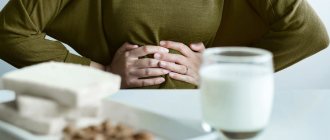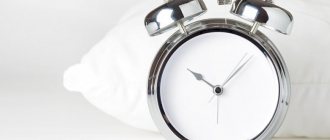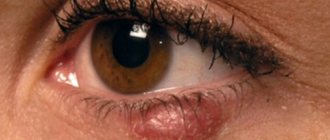Issues discussed in the material:
- Why is constipation more common in old age?
- What is the cause of constipation in bedridden elderly people
- How do medications for constipation differ in terms of degree of impact?
- Which medications for constipation work faster: oral or rectal?
- Is it possible to cope with constipation in older people using folk remedies?
Problems associated with the proper functioning of the gastrointestinal tract have become commonplace in modern conditions. Members of the older generation, who often need to deal with constipation on a regular basis, suffer from them especially often. Difficulties with bowel movements are a natural manifestation of aging, caused by many external and internal reasons. Constipation medications for older people are affordable, safe and gentle remedies to help cope with this unpleasant situation. Medicines or traditional medicine recipes - which is better to use to solve a delicate problem?
Symptoms of persistent constipation
Frequent constipation is often accompanied not only by difficulties and rare bowel movements. They can be characterized by the appearance of mucus and blood in the stool, pain in the rectum and perianal area. This is due to mechanical trauma to tissues from dense stools.
The normal frequency of bowel movements is three times a day to three times a week. The shape of the stool also matters—with constipation, it is denser.
Associate professors of the Department of Internal Diseases Babieva A. M., Bogatyrev V. G., Marinchuk A. T., Koumbatiadis D. G. believe that “constipation contributes to the development of various diseases, reduces quality of life by 20% and is one of the early risk factors the occurrence of pancreatic, gallbladder and colorectal cancer" (Babieva, Bogatyrev, Marinchuk, Koumbatiadis, 2012, p. 52).
When to see a doctor?
Constipation as an occasional occurrence should not cause unnecessary concern. Often the reason lies in poor nutrition, stress or a change in environment (moving, business trips, etc.), and eliminating the provoking factors solves the problem. However, if constipation continues regularly, this may indicate the presence of health problems, so in such a situation you should not postpone a visit to the gastroenterologist.
Particular attention to this problem should be paid to pregnant women, since excessive straining is contraindicated for them. In addition, constipation is fraught with the development of intoxication of the body, which is also completely unnecessary for a pregnant woman.
People prone to gastrointestinal diseases should also regard increasing constipation as a signal from the body that the course of the disease is worsening. Therefore, you should not expect that the problem will solve itself - in such situations, the help of a doctor is necessary.
Causes of prolonged constipation
There are several reasons for the development of persistent constipation. The most common is poor nutrition, namely a lack of dietary fiber and a predominance of refined foods.
Professor Livkin V.L. believes that “a common cause of the development of chronic disease is a change in the intestinal microflora due to disruption of the production of specific substances by representatives of the normal flora of the colon that promote the formation of stool and support optimal motor activity of the colon” (Livkin, 2013, p. 78).
Constipation can be caused by other factors:
- physical inactivity;
- violation of the water regime;
- intestinal dysbiosis;
- endocrine diseases;
- tumors of the digestive system;
- inflammatory diseases of the gastrointestinal tract;
- proctological diseases;
- neurological diseases.
Also, stool retention may be associated with taking medications. Drugs that can cause constipation as a side effect include drugs to normalize blood pressure and heart rate, antibacterial drugs, hormonal drugs, antiepileptic drugs, diuretics, tranquilizers, iron supplements and others.
By type of reason
Depending on the causes of frequent constipation, they are classified into several types:
- alimentary or nutrition-related;
- neurogenic;
- proctogenic;
- dyskinetic;
- hypodynamic;
- psychogenic;
- medicinal.
The head of the department of gastroenterology of the State Healthcare Institution ROCH Babieva A.M. and other authors believe that “constipation in 80–90% of cases is of a functional nature, the rest is caused by reasons of an organic nature” (Babieva A.M., Bogatyrev V.G., Marinchuk A. T., Koumbatiadis D. G., 2012, p. 53).
By gender and age
Gender and age act as risk factors for the development of constipation. In women, this disorder of intestinal function is more common, developing, among other things, during pregnancy and after childbirth.
According to various sources, up to 60–80% of people over 60 years of age suffer from constipation, which may be due to disturbances in the transmission of nerve impulses, overstretching of the intestinal walls, developed proctological diseases, a sedentary lifestyle and other factors.
Get rid of intestinal problems
The natural British drug is not addictive and works immediately
Find Fitomucil with benefits
Stimulant laxatives
Stimulants of peristalsis (intestinal contractions) are irritating substances that act on nerve endings in the intestinal mucosa 3,4,5,6,7.
Medicines with an irritating effect can act on different parts of the digestive tract3,4,5:
- the small intestine is the zone of action of castor oil and laxative resins;
- The activity of the colon is increased by preparations of senna, buckthorn, rhubarb, sulfur, sodium picosulfate and diphenylmethane derivatives.
They also secrete drugs that are converted into an active form under the influence of intestinal enzymes, so they “work” in both the small and large intestines3,4,5,6.
It is important to remember that if you abuse stimulant laxatives, side effects are possible:
- Diarrhea with cramping pain in the abdomen . Due to diarrhea, the body loses the potassium, sodium and chloride ions it needs. With their deficiency, general weakness is a concern, and due to an imbalance of ions, there is a likelihood of arrhythmias and a decrease in blood pressure5,16.
- The "lazy gut" phenomenon . “Lazy” is a colon that has become an enlarged tube that has lost its tone. Without taking large doses of laxatives, it is unable to contract and move stool. This often happens if the drug accumulates in the colon mucosa and its nerve plexuses, and then destroys the smooth muscles that push feces1,5,16.
Lazy bowel syndrome is manifested by the progression of constipation, which is difficult to correct2,5. Due to rapid addiction7, peristalsis stimulants are not recommended for use for more than 14 days5,16.
Up to contents
Treatment of chronic constipation
Your doctor will tell you what to do if you have persistent constipation; if you have a chronic problem, it is important to see a therapist or gastroenterologist. Many patients self-medicate by uncontrollably taking laxatives or using cleansing enemas on a regular basis. This may cause the condition to worsen.
Thus, Professor Parfenov A.I. writes that “the systematic use of cleansing enemas inevitably leads to the formation of an inert colon due to the loss of visceral sensitivity and defecation reflex” (Parfenov, 2013, p. 100). To cure chronic constipation, it is important to adjust your diet and not uncontrollably take laxatives.
It is worth understanding that long-term constipation requires complex treatment. There are several directions in which you can act to normalize stool.
Consultation with a gastroenterologist
Contacting a specialist is mandatory if constipation does not occur just once due to certain circumstances, but is observed systematically or appears from time to time. The doctor will examine the clinical picture, listen to complaints, collect anamnesis and prescribe diagnostic methods to identify the exact causes of intestinal dysfunction. These include:
- laboratory blood tests;
- stool examinations, including occult blood tests;
- colonoscopy, irrigoscopy according to indications, etc.;
- FGDS;
- Ultrasound of the abdominal organs.
During the initial consultation, the gastroenterologist will talk about possible causes and provide referrals for research. At the second appointment, based on the results of the completed diagnostics, the exact diagnosis will be known.
In the vast majority of cases, chronic constipation is associated with dietary habits. But sometimes the doctor deals with diseases of the gastrointestinal tract accompanied by constipation. These include the following:
- dolichocolon;
- intestinal diverticulosis;
- peptic ulcer;
- cholelithiasis;
- intestinal tumors;
- haemorrhoids.
A number of diseases lead to disruption of the digestive processes and contraction of the intestinal muscles, others represent a mechanical obstacle to the movement of feces.
Diet to get rid of constant constipation
Nutrition for chronic constipation should be revised in the direction of replenishing the diet with fiber. A high amount of dietary fiber is found in bran, fresh vegetables, fruits, and dried fruits.
However, to get your daily fiber intake you will need to eat a lot of fiber-rich foods. This can be difficult, so sometimes it makes sense to find a source of dietary fiber in the form of a supplement.
Regular use of fiber will help speed up the movement of stool through the intestines and ensure regular spontaneous bowel movements.
It is important to pay attention to the drinking regime. Drinking less than 1.5–2 liters of water per day can lead to excessive absorption of water in the intestines and dehydration of stool. Therefore, it is necessary not only to drink enough fluid, but also to avoid losing it - eliminate or reduce the consumption of drinks with a diuretic effect. These include tea and coffee.
It is better to exclude from the diet foods and dishes with an astringent, fixing effect: +
- crackers, confectionery products made from premium flour;
- fatty food;
- confectionery;
- peeled rice;
- jelly.
The menu for chronic constipation must include vegetable oils, vegetables and fruits, wholemeal bread, and dairy products without sugar. It is better to choose low-fat poultry, meat and fish, and prefer cereals as side dishes.
Literature:
- Minushkin O.N. Functional constipation: dynamics of ideas, diagnosis, some therapeutic approaches. Medical advice. 2017; 20:92-95
- Turchina M.S. The use of complex laxatives in the treatment of chronic constipation. Medical advice. 2017; 5:77-79
- Minushkin O.N. Chronic constipation (definition, epidemiology, diagnosis): modern drug therapy. Medical advice. 2015; 13: 100-105
- Plotnikova E.Yu., Krasnov K.A. Constipation needs to be treated. Medical advice. 2018; 14:61-66
- Stepanov Yu.M., Vlasova O.N. et al. Negative effects of laxative abuse in medical practice. Gastroenterology. 2018; 52 (3): 168-173
- Luzina E.V. Safety of using laxatives. Russian medical journal. 2014; 5:41-44
- Parfenov A.I. Three options for the pathogenesis and treatment of chronic constipation. Gastroenterology. 2012; 3:7-19
- Plotnikova E.Yu. Modern ideas about constipation. Attending doctor. 08/2015
- Pharmacology of drugs affecting the function of the digestive organs: textbook by A.N. Leventa, L.B. Kuklina, S.G. Alexandrov, N.V. Verlan, L.O. Gutsol, I.Zh. Seminsky, O.V. Shabaturova; GBOU VPO IGMU of the Ministry of Health of Russia - Irkutsk, 2013. -112 pp. 102-103
- Global practical recommendations of the World Gastroenterological Organization. Probiotics and prebiotics. 2021 — 37 p.
- Instructions for use of MICROLAX® microenemas. // Reg. number P N011146/01 // GRLS of the Russian Federation. – URL: https://grls.rosminzdrav.ru/Grls_View_v2.aspx?routingGuid=f052fb31-5426-4bc1-958f-9fce793aa43f&t= (date accessed 05/05/2010).
- Erdes S.I., Matsukatova B.O. and others. Episodic and chronic constipation in children: a step-by-step approach to therapy within the framework of the IV Rome criteria. Pediatrics. Consilium Medicum. 2019; 1:71-76
- Constipation in young children: causes and features of dietary correction O.N. Komarova, A.I. Khavkin (Questions of modern pediatrics. 2014; 13 (1): 114–118
- Clinical recommendations. Constipation in adults (as a manifestation of systemic diseases). Scientific Society of Gastroenterologists of Russia (NOGR), Russian Scientific Medical Society of Therapists (RNSOT) - 2019
- Lactulose: arguments and facts. Yu.O. Shulpekova. EFFECTIVE PHARMACOTHERAPY. Gastroenterology. 5/2011 - pp. 28-71.
- Clinical guidelines: Constipation / Russian Gastroenterological Association. Association of Coloproctologists of Russia - 2021.
- Minushkin O.N. 1, Elizavetina G.A. Forlax in the treatment of chronic constipation: features of therapy for elderly patients / “Breast Cancer” No. 1 - 2006.
Up to contents
Watch in our video which laxative to choose for constipation: tablets, syrup or microenemas
Physical activity for frequent constipation
One of the key values in the prevention and treatment of chronic constipation is physical activity. Loads commensurate with age and health status stimulate improvement of intestinal peristaltic activity.
For example, taking a deep breath stimulates improvement of trophism. Trained muscles of the anterior abdominal wall create optimal pressure for the normal functioning of the lower gastrointestinal tract.
Exercise helps improve a person’s quality of life and relieve chronic constipation. Sometimes regular walking for up to one hour is enough to improve bowel function.
Particularly useful in this regard are gymnastics, water aerobics, swimming, and cycling. Therapeutic exercises are the main method of treating spastic and atonic constipation; it improves the tone of the intestinal muscles. Light fitness, yoga, jogging can also be an option to keep fit.
If there are contraindications to exercise, you should consult your doctor and jointly choose the appropriate types of exercise.
Prevention
To prevent constipation, you should adhere to the following recommendations:
- Consult a doctor promptly if you experience digestive disorders - constipation is often a consequence of various gastrointestinal diseases.
- Do not eat dry food and chew food thoroughly.
- Ensure sufficient physical activity - at least half an hour of walking a day, physical exercise, working out the abdominal muscles. All this improves intestinal motility.
- Drink plenty of water and eat fiber-rich foods.
- Minimize the consumption of alcohol, as well as fried, flour and fatty foods.
- Avoid nervous stress.
- Train yourself to eat and go to the toilet at approximately the same time.
You can also watch a video that discusses reliable, homemade ways to relieve constipation.
The connection between intestinal microflora and constipation
The consequences of chronic constipation may be disturbances in the balance of intestinal microflora, but there is also an inverse relationship: dysbiosis leads to the development of prolonged constipation. In both cases, the intestinal microbiome should be restored and, at the same time, stool retention should be corrected.
For this purpose, both prebiotics and combination preparations containing them can be used. This is especially true for cases when dysbiosis develops against the background of antibacterial therapy.
Instructions for use
Rectal suppositories must be inserted correctly. If you take a suppository and immediately insert it into the rectum, it will simply fall into its lower ampullary section, which is why the desired effect will not be achieved. This is why it is so important to administer rectal suppositories correctly.
Instructions:
- Release the suppository from the packaging.
- Lie on your left side with your knees bent. They should be brought to the stomach.
- Relax and with your right hand carefully insert the candle into the anus, but not entirely. It needs to be held in this position for about 30 seconds so that it melts a little under the influence of body temperature.
- Push the suppository completely into the rectum.
When performing the procedure, it is recommended to use gloves or a fingertip. If the candle was inserted with bare hands, they should be washed with soap.
Glycerol Euro
Suppositories are named after the active substance - glycerol. They are an analogue of glycerin suppositories. Available in dosages of 1 or 2 g.
Glycerol Euro is approved for use in pediatrics for the symptomatic treatment of constipation in the age group from 2 years.
The manufacturer uses gelatin as a binder, so the drug must be stored in the refrigerator.
The cost of packaging (12 pcs.) ─ 200 rubles.
Glycerol
The basis of the rectal product is glycerol. It has a dehydrating effect, that is, it promotes the accumulation of fluid in the intestinal cavity, preventing its absorption. This causes the stool to liquefy. In addition, the active substance irritates the receptors of the mucous membrane. As a result, intense contraction of the walls of the lower digestive tract occurs.
In addition, glycerol has emollient properties. When dissolved, it envelops the walls of the rectum, thereby facilitating painless excretion of feces.
Glycerol-based laxative suppositories dissolve quickly. The effect occurs within 10 minutes after parenteral administration. Sometimes the urge to defecate may be delayed for 1-1.5 hours.
Suppositories for constipation are recommended to be administered in the morning, 15 minutes after breakfast. Dosage ─ 1 candle per day.
There are no contraindications for use during pregnancy and lactation in the instructions.
At a dosage of 2.11 g it is permissible to use in children only from 5 years of age. For the younger category, suppositories for constipation are produced with a smaller amount of medicinal substance.
The price of the package depends on the dosage of the substance. On average 10 pcs. cost in the range of 150-170 rubles.
Mukofalk
A German herbal laxative (psyllium husk) is sold in powder form from which a suspension is prepared. This is convenient for those who have problems swallowing. Plantain seeds absorb a lot of water, which has a positive effect on constipation. In addition to plantain seeds, “Mukofalk” contains a lot of plant mucus, which ensures easy passage of feces. This laxative is prescribed to children from 12 years of age, and is also used in the complex treatment of high cholesterol. Among the advantages of the drug are a pleasant orange taste, excellent tolerability, long-lasting effect and the possibility of use during pregnancy. There are some side effects that you should definitely read in the instructions.
Mukofalk
Dr. Falk Pharma, Germany
- constipation (including during pregnancy);
- anal fissures; - haemorrhoids; - postoperative period during interventions in the anorectal area (in order to create a softer stool consistency); - functional diarrhea; - irritable bowel syndrome. from 421
1006
- Like
- Write a review
Magnesium sulfate
Magnesium sulfate is a strong saline laxative that promotes the accumulation of water in the intestines, causing muscles to reflexively contract. Magnesium sulfate also has a choleretic effect, which stimulates digestion and prevents constipation due to dietary errors. The advantages of this laxative: the effect after taking lasts all day, blood pressure decreases slightly, swelling decreases, and sleep improves. Among the obvious disadvantages is an unpleasant taste.
Magnesium sulfate
YuzhPharm, Russia
Constipation, bowel cleansing before diagnostic procedures.
Poisoning with salts of heavy metals (mercury, arsenic, tetraethyl lead, barium). from 12
956
- Like
- Write a review









